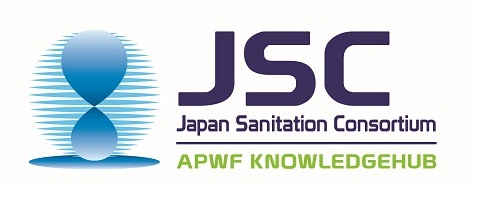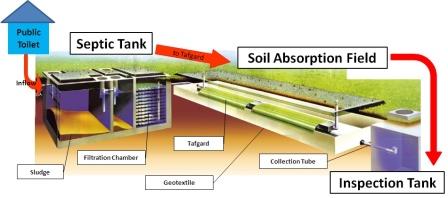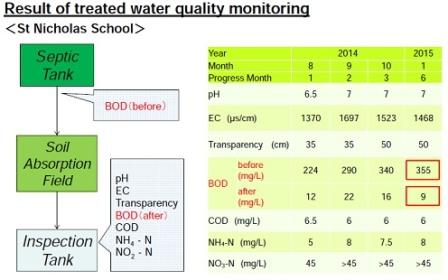
► NEWS & EVENTS
Soil absorption system project in Solomon Islands
1. Project objectives
The proposed project is aimed at introducing and constructing a soil absorption system designed by a Japanese manufacturer: Taisei Kogyo Co., Ltd. This project supported by the Japan International Cooperation Agency (JICA) is a joint venture between Taisei Kogyo Co., Ltd., Original Engineering Consultants Co., Ltd., and the Japan Environmental Sanitation Center (JESC) – a member organization of the Japan Sanitation Consortium (JSC). Specialized in wastewater and sludge management, JESC’s main role in this project is as technical adviser.
The major objectives of the project are:
2. Soil absorption system
The system consists mainly of a septic tank and a soil absorption field, which is environmentally friendly and requires a limited usage of energy. The wastewater treated in the septic tank is discharged and spread over the soil absorption field by gravity. Part of it is stored in an inspection tank, which is connected to the field via a collection tube, and can be reused for toilet flushing. The effluent on the soil absorption field gradually evaporates while also enabling plant growth.
With regard to maintenance, the system’s inspection tank needs to be opened for water quality inspection at least within six months after commencing operation in flat areas, and at least within a year after commencing operation in mountainous areas.
The concept chart of the system is shown in Figure 1.

3. Results of demonstration systems in Honiara city
Demonstration systems were installed at two sites in Honiara City: St Nicholas School and Mataniko Site, with the system at St Nicholas School being installed by a local construction company under the supervision of Taisei Kogyo.
Inspections indicated excellent results and finally showed BOD 9 mg/L compared to BOD 355 mg/L measured in the septic tank before treatment through the soil absorption system (as of January 2015). The difference in BOD values reached 98 percent, demonstrating that the system had worked very well under normal circumstances in Solomon Islands.

4. Challenges to be solved
The challenges to be solved for realizing the pay-for-use toilet business are to secure an appropriate number of users to ensure the balance between income and expenses. In addition, surveys about policies and regulations on sanitation and environmental protection, and efforts to cut the costs of the materials needed for the systems should be sustained. Both the survey team in Japan and the local partners in Solomon Islands should keep in touch mutually to maintain fine relationships with local government agencies, such as the Ministry of Environment, Climate Change, Disaster Management and Meteorology of Solomon Islands. The survey team in Japan will continue to provide its support to the local partners with the aim of helping them establish their own business models.